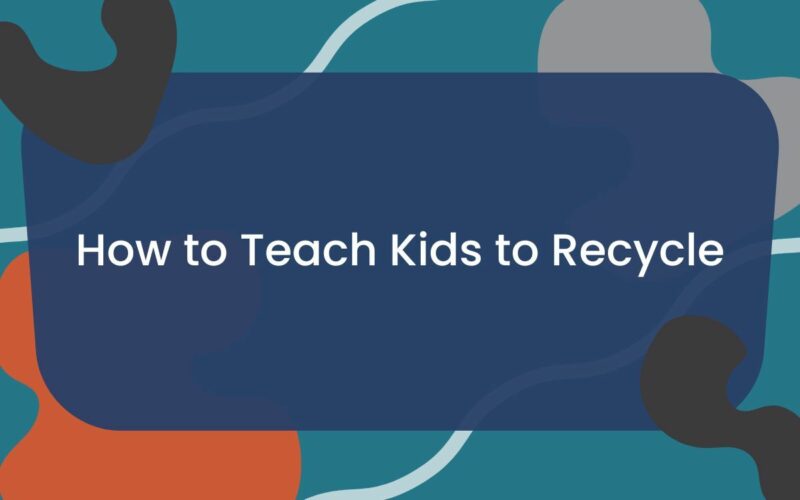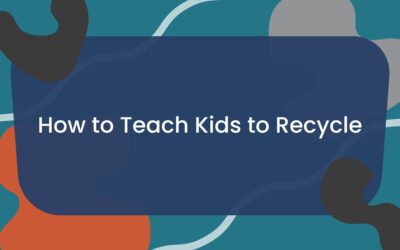Teaching our kids to recycle is an important first step in shaping their mindsets about environmental responsibility. Giving them this practical education at a tender age is crucial to establishing eco-friendly habits that will last a lifetime. Plus, it helps them foster creativity and develop essential skills that may prove vital as they grow older.
How can we introduce our children to recycling and sustainability? Here are seven easy steps to get them involved and have fun while learning.
Get Their Interest
You want to introduce the topic in the simplest way possible. Young kids are naturally curious and will likely ask why you’re sorting recyclables and compostables from the regular trash pile. That presents a prime opportunity to spark their interest. The key thing here is they have to see you doing it. Sustainability can be too complex a subject to explain in words to a child, so practical demonstrations are best.
Make Sure They Understand Why
It’s all about drilling down to the most basic core benefit of recycling. Chances are a young kid won’t yet be able to fully grasp terms like “natural resource conservation,” “methane emission mitigation” or “nonhazardous waste.” However, they would quickly understand direct examples, like how recycling just 1 ton of paper saves 7,000 gallons of water and up to 17 trees. This simple connection to elements in their immediate environment will drive them to care about its sustainability.
To make sure the lesson sticks, really emphasize just how important recycling efforts are. Each year, nearly 300 million tons of plastic are produced and discarded. Explaining the dangers of microplastics, greenhouse gasses and climate change in a way that feels important — without coming across as scary — will inspire them to want to make a difference.
Make a Compost Bin Together
Composting is the most natural form of recycling. It’s also the easiest way for your kid to get practical experience — every household has organic waste, and anyone can make a compost bin. When it’s ready, show them how to use it and let them continue from there. Depending on their age, it’s not uncommon for children to have plenty of leftovers. Showing them how to compost can teach them about proper waste management.
Make Recycling Fun
Learning through play is pretty much the only way young kids engage with anything. Fun activities like playing a waste-sorting game or crafting art from recycled materials make recycling enjoyable. What about scavenger hunts where we track down paper-based items that can be recycled around the house, such as shoe boxes and old mail?
As they become more involved, encourage their creativity by letting them contribute to the process. For example, you can let them choose the colors of the bins or decorate them as they please, whether by bedazzling them or gluing on pictures.
Reinforce Their Learning
Give your kids an opportunity to see recycling on a much larger scale so they have a better idea of what it truly entails. For example, you can take them to the nearest local recycling center to see the process up close. If they’re old enough, an eco-friendly summer camp may be a great place to learn about sustainability through exploration. These outdoor adventures may also expose them to more efficient ways to recycle, which they can share with the family.
Incentivize Recycling
Studies show that kids are motivated by internal and external rewards when playing. This need also applies to your fun recycling activities. Offering incentives can drive them to take the task more seriously and stay committed even when it starts to seem tedious.
Teach Kids to Recycle
Recycling is one of the best places to begin teaching our children about sustainability. These strategies help you broach the subject and present it in a fun and engaging manner. Remember to lead by example, as it’s the only way the lessons will stick.
Jack Shaw is the senior lifestyle writer at Modded with and a single father with a special interest in navigating the ins and outs of being a parent. As fathers, the work we put in isn’t always recognized, but it’s absolutely essential to the health and well-being of our children. You can find more of Jack’s work in publications like Tiny Buddha, Daddy’s Digest, Parent.com and more.









